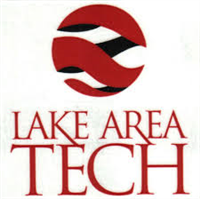What do they do?
Locate and notify customers of delinquent accounts by mail, telephone, or personal visit to solicit payment. Duties include receiving payment and posting amount to customer's account, preparing statements to credit department if customer fails to respond, initiating repossession proceedings or service disconnection, and keeping records of collection and status of accounts.
Also known as:
Account Representative, Accounts Receivable Specialist (AR Specialist), Bill Collector, Billing Representative, Collection Agent, Collection Representative, Collection Specialist, Collections Agent, Collections Analyst, Collections Officer, Collector, Customer Account Specialist, Debt Collector, Installment Loan Collector, Patient Access Specialist, Patient Account Representative, Telephone Collector
-
-7.2%
Change
Ranks #56 in job growth rate510Job Openings
Ranks #15 in net job growth
Looking for colleges that offer a specific major? Use the College Match Tool to find your best-matched schools and discover your estimated Net Price!
- Some college, no degree (34%)
- High school diploma equivalent (30%)
- Bachelor's degree (15%)
- Associate's degree (14%)
- Less than high school diploma (3%)
- Master's degree (2%)
- Doctorate or Professional Degree (1%)
People in this career often have these skills:
- Active Listening - Giving full attention to what other people are saying, taking time to understand the points being made, asking questions as appropriate, and not interrupting at inappropriate times.
- Speaking - Talking to others to convey information effectively.
- Social Perceptiveness - Being aware of others' reactions and understanding why they react as they do.
- Persuasion - Persuading others to change their minds or behavior.
People in this career often know a lot about:
- English Language - Knowledge of the structure and content of the English language including the meaning and spelling of words, rules of composition, and grammar.
- Customer and Personal Service - Knowledge of principles and processes for providing customer and personal services. This includes customer needs assessment, meeting quality standards for services, and evaluation of customer satisfaction.
- Mathematics - Knowledge of arithmetic, algebra, geometry, calculus, statistics, and their applications.
People in this career often have talent in:
- Oral Comprehension - The ability to listen to and understand information and ideas presented through spoken words and sentences.
- Oral Expression - The ability to communicate information and ideas in speaking so others will understand.
- Written Comprehension - The ability to read and understand information and ideas presented in writing.
- Speech Recognition - The ability to identify and understand the speech of another person.
- Speech Clarity - The ability to speak clearly so others can understand you.
- Written Expression - The ability to communicate information and ideas in writing so others will understand.
People in this career often do these activities:
- Maintain financial or account records.
- Provide notifications to customers or patrons.
- Monitor financial information.
- Negotiate financial arrangements.
- Discuss account status or activity with customers or patrons.
- Respond to customer problems or complaints.
- Collect deposits, payments or fees.
- Obtain personal or financial information about customers or applicants.
- Interview employees, customers, or others to collect information.
- Provide information to coworkers.
- Sort mail.
- Maintain medical records.
- File documents or records.
This page includes data from:

 Occupation statistics: USDOL U.S. Bureau of Labor Statistics Occupational Employment Statistics
Occupation statistics: USDOL U.S. Bureau of Labor Statistics Occupational Employment Statistics
 Videos: CareerOneStop, USDOL/ETA and the Minnesota Department of Employment & Economic Development
Videos: CareerOneStop, USDOL/ETA and the Minnesota Department of Employment & Economic Development









